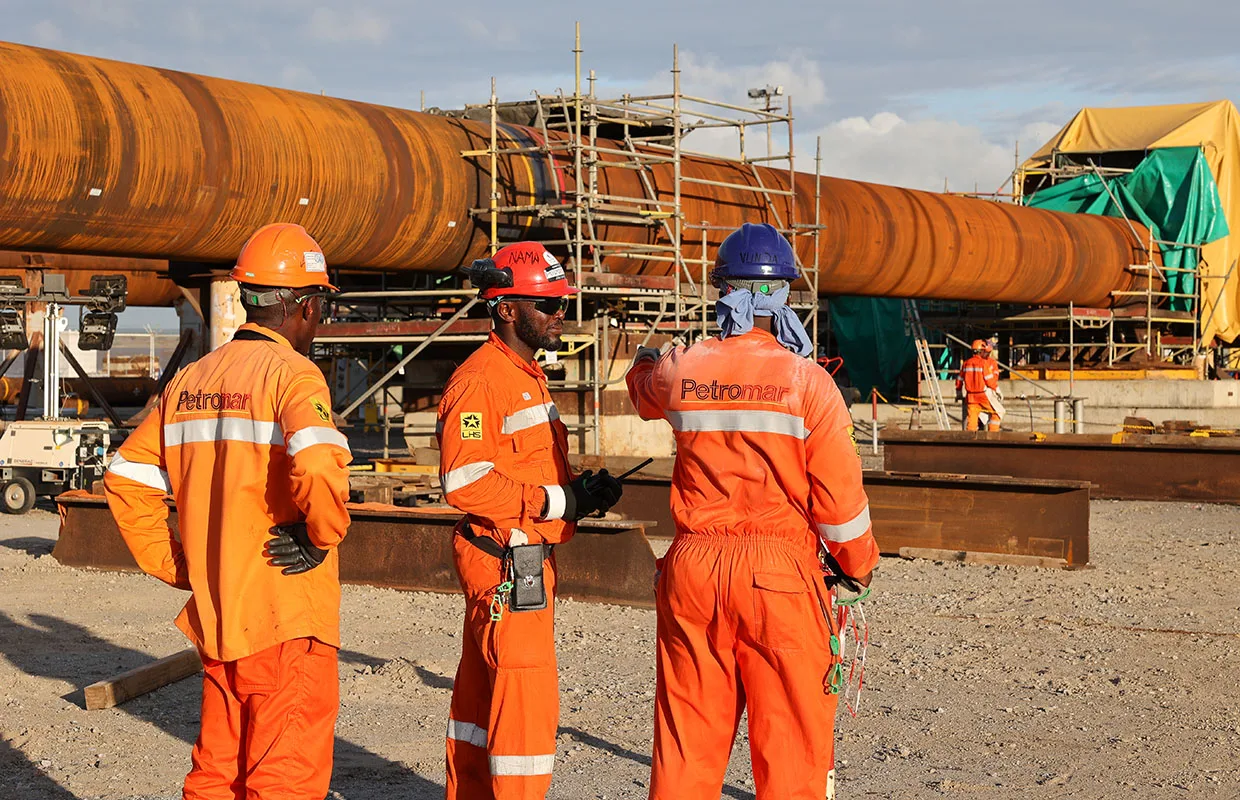PROVIDING PROJECT SUPPORT
Petromar is already enthusiastic to work again with TotalEnergies, who has confirmed its investment decision in the new Block 20 at the Kaminho project, implementing a new FPSO.
TotalEnergies awarded Saipem and Petromar a contract to build the required FPSO as well as the entire subsea system, including subsea umbilicals, risers, and flowlines (SURFs).
The construction of the project’s FPSO will be conducted by Saipem and its team of contractors, whilst Petromar will fabricate the 12 anchoring piles and a riser protector that will eventually be fitted to the FPSO.
The SURF portion of the project, which will be fully fabricated at the Ambriz yard from 2026 onwards, includes creating subsea structures for the ocean floor that will link the FPSO to the ground.
The company is proud to be working with TotalEnergies again after completing its last project with the client in 2017.
“Petromar will take this new project as an opportunity to keep investing in its assets and maintaining its competencies that it has amassed over the years,” Heintz elaborates.
The company will introduce a new workshop dedicated to rolling plates for pipes used throughout the project.
This not only demonstrates Petromar’s commitment to maintaining its footprint in Angola, and Ambriz in particular, but also emphasises its ability to adapt its infrastructure to the best construction methods.
Additionally, the company is diligently evaluating how best to support Saipem in operating and maintaining the FPSO that will be installed in Block 20.
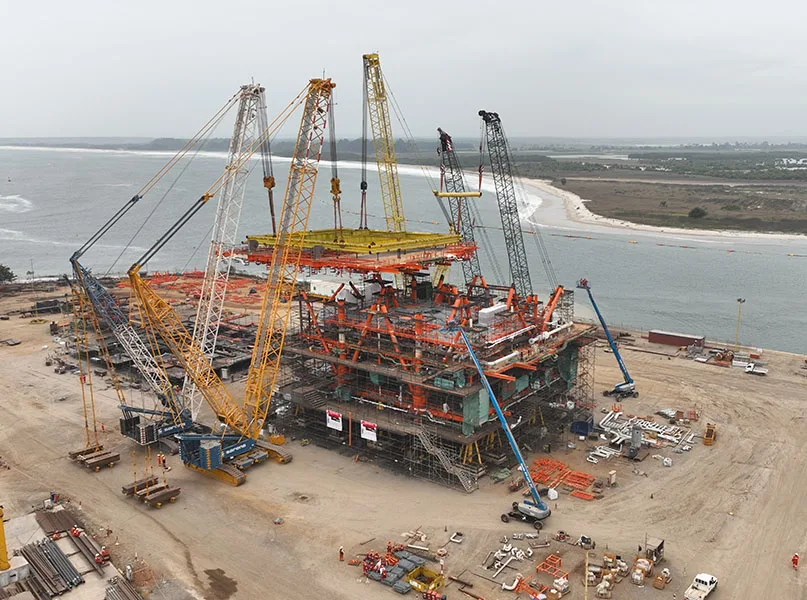
RELIABLE FPSO SERVICES
Petromar’s FPSO expertise is most aptly demonstrated by its maintenance support services on Blocks 18 and 31 for Azule Energy.
“Whilst the client is in charge of defining and implementing the maintenance plan, we support them by providing permanent service teams and mobilising original equipment manufacturers (OEMs) or temporary crews defined by the client for specific needs,” outlines Heintz.
To ensure this is completed effectively, the company requires substantial financial strength, coordination, and a means of control.
DEPENDABLE SUPPLIERS
Petromar has a dedicated procurement and supply team in Luanda that is committed to engaging reliable suppliers in difficult business environments and manages all offshore maintenance projects.
When performing procurement services for clients, Petromar aims to mobilise Angola’s specialised foreign subcontractors as well as Angolan subcontractors, which are required to perform dedicated maintenance tasks and FPSO training, whilst also attending to its own needs in terms of reactivity, domestic stock availability, and competitiveness.
Undoubtedly, the reliability and cooperation of vendors is essential in the oil and gas sector.
“Our clients and administrative processes are demanding – Angolan regulations are such that, for some foreign vendors, the project might appear complex or too difficult to deal with. Therefore, it is important to establish transparent and reliable relationships,” details Heintz.
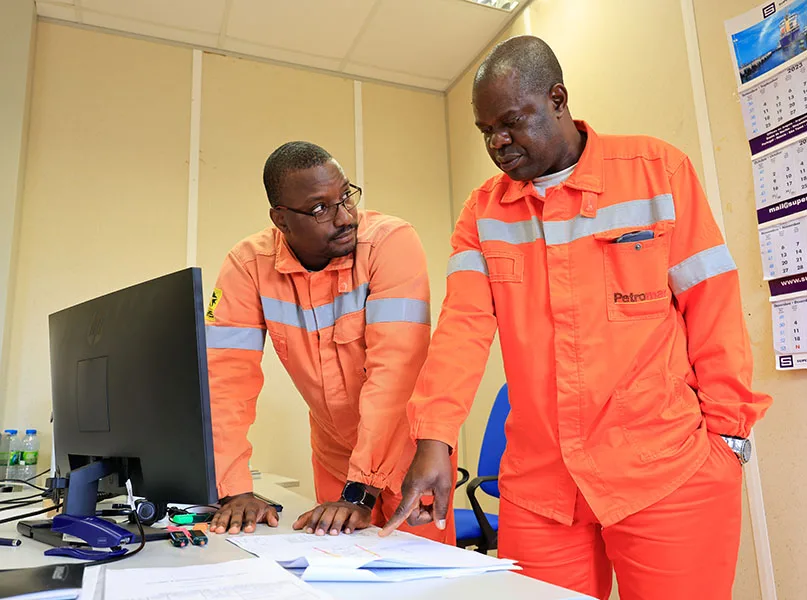
Thus, the company requires reliable suppliers who can meet its requirements for materials, consumables, spare parts, workshop infrastructure, warehousing, and items related to civil works.
During fabrication activities, for instance, the company needs to source the right welding consumables, personal protective equipment (PPE), painting and non-destructive testing (NDT) services, and rental equipment.
Therefore, Petromar contracts the appropriate service businesses with the highest standards of certification and safety.
Moreover, when working with major suppliers, Petromar has the transportation capabilities to ship directly to its quay at the Ambriz yard. However, this is dependent on the draft limitations of a vessel being respected and shipped materials being cleared with customs authorities and made available for projects.
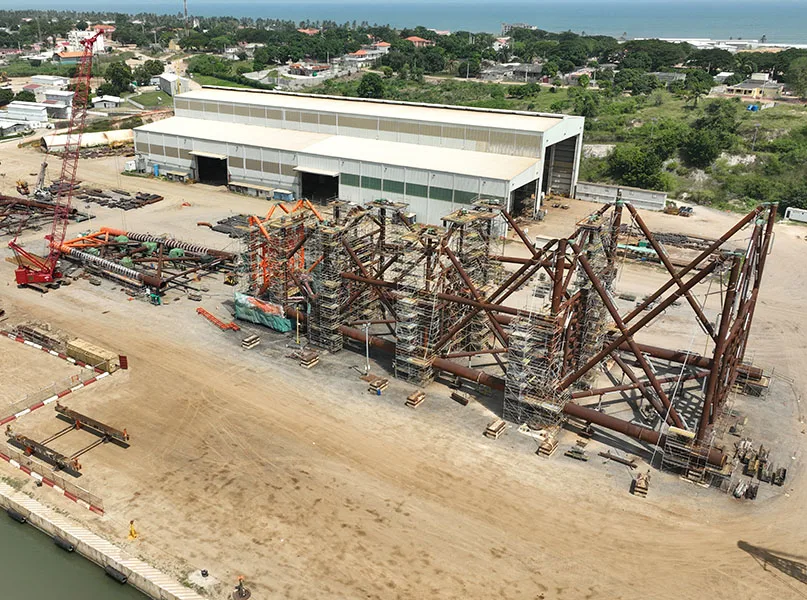
TRAIN AND RETAIN
Staff are critical to the success of Petromar, who currently has 2,300 direct and indirect employees, albeit the number of team members depends on market conditions.
Nevertheless, Petromar strives to maintain a core team in Ambriz, Cabinda, and Luanda, comprising of individuals from the local area, providing greater employment and development opportunities for the surrounding community.
In order to maintain a dependable team, the company strives to continuously train, retrain, and upskill its employees.
“In our 40 years of existence, many people have joined Petromar, done a lot with their careers, and reached retirement with the company,” Heintz points out.
The long-standing retention of staff speaks volumes about Petromar’s ability to recognise the value of team members and, in turn, equip its staff with the appropriate skills for professional development, instilled through regular training programmes across Ambriz.
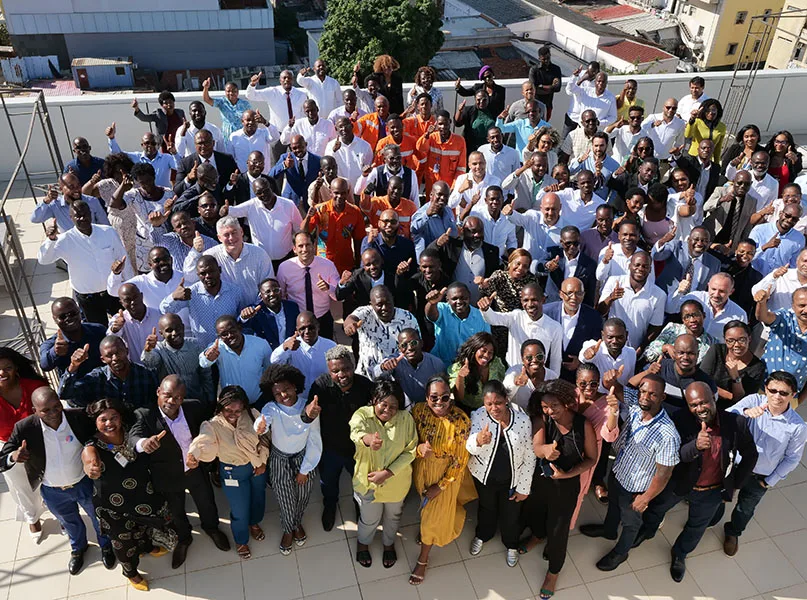
These particular skills include welding, technical office functions, project management, fabrication methods, and more, which result in a sustainable development path for staff, the local community, and Angola as a whole.
“Generally, the engagement of our office and field staff is target-orientated, and any new challenge is seen as an opportunity to grow,” he adds.
Due to the increase of activity at the Ambriz yard, Petromar is drawing potential candidates from further afield.
As part of this expansion, the company is currently in the planning stages of a local housing initiative that will incentivise workers from across Angola to find residence in the area.
In support of this, the company is working with the municipality’s local developers to transform vacant buildings and unused sites into functional and comfortable accommodation for Ambriz yard employees.
As such, this is one of the many ways in which Petromar works to support the local community and improve employee well-being.
“We have managed to adapt ourselves and our assets, whilst also training our associates, which will allow us to maintain operations for another 40 years”
Frederic Heintz, General Manager, Petromar
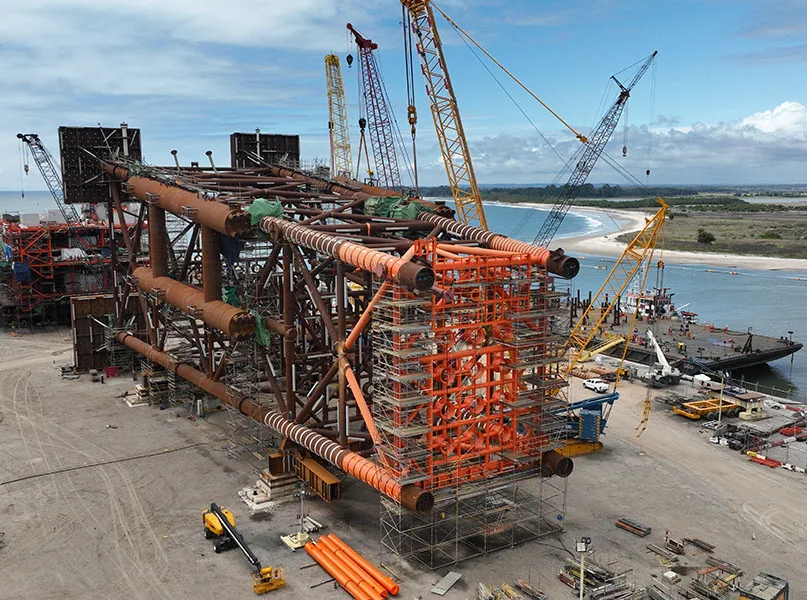
MAINTAINING 40 YEARS OF SUCCESS
Going forward into 2025, Petromar’s target is to deliver on its current projects, including the construction of the Quiluma platform for NGC.
After the load-out of the jacket, the company anticipates completing the load-out of the Agogo PLET before delivering the deck in Q1 2025 and progressing the fabrication of structures in the Ndungu field.
Petromar is also ready to seize any opportunities that arise from other types of business.
“In particular, some operators are currently planning abandonment and decommissioning programmes for some of their facilities. We believe that Petromar could play a key role in these, partnering with several actors in this new market,” insights Heintz.
Having remained at the forefront of the industry over the last four decades, Petromar is evidently not resting on its laurels.
“We have managed to adapt ourselves and our assets, whilst also training our associates, which will allow us to maintain operations for another 40 years,” Heintz closes.



